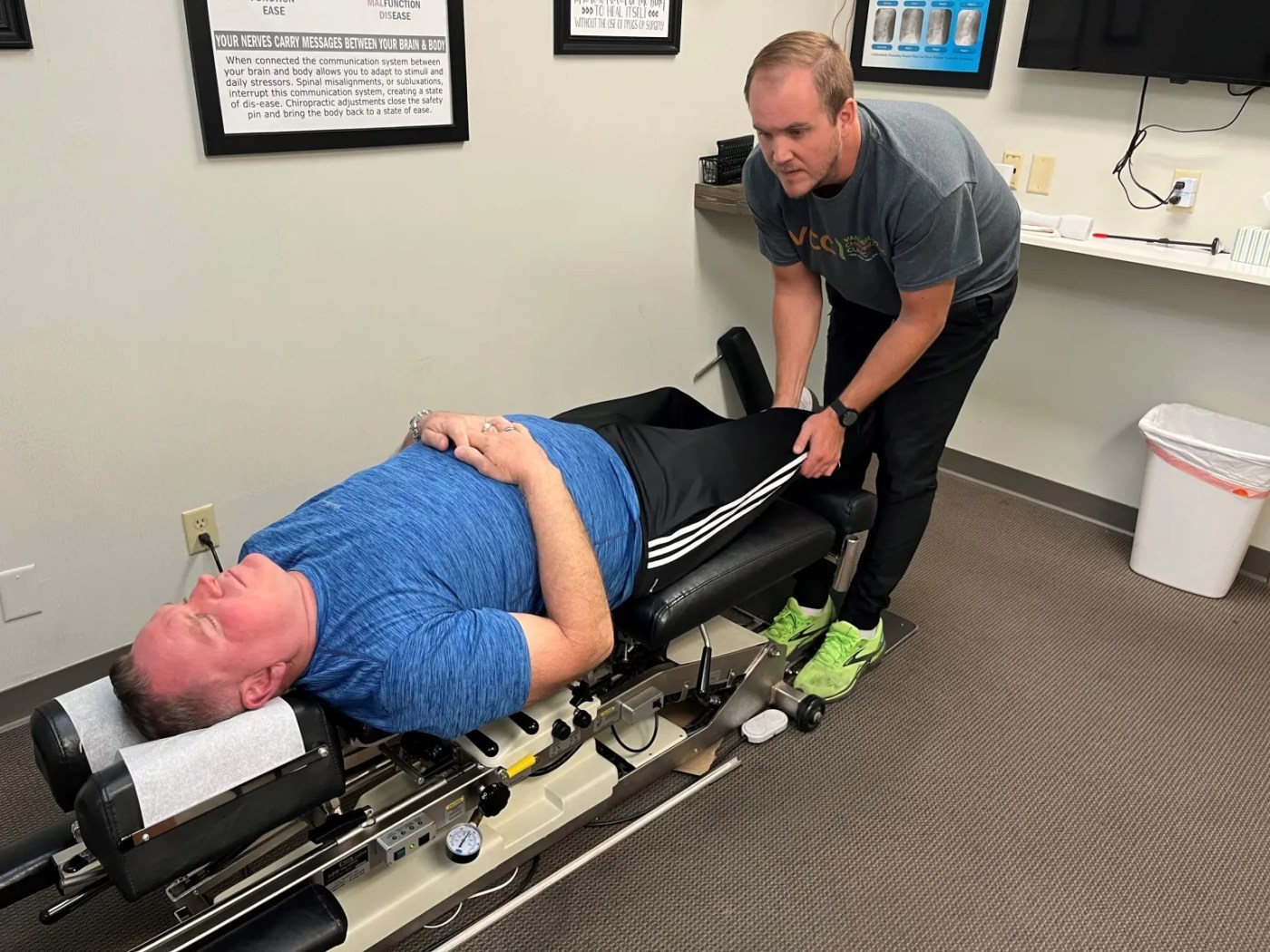Congress Seeks to Expand Veterans' Access to Non-VA Care

Veterans Seek Streamlined Access to Private Care While Balancing VA System Needs
John-Paul Sager, a Marine Corps and Army veteran, has benefited from the care provided by Department of Veterans Affairs (VA) hospitals and clinics. However, he believes that the process for accessing non-VA services should be simpler for veterans like him. Sager uses his VA coverage to receive treatment for back injuries sustained during his military service, but he often finds it cumbersome to get approval for care at local chiropractors.
Many veterans live far from VA facilities or require health services not readily available through the VA. In these cases, the department is supposed to provide referrals and cover private care. Critics argue that the VA frequently hesitates to make these referrals, leading to delays and frustration among veterans.
Republicans in Congress are working to streamline the process of obtaining what is known as community care. Two Republican senators have introduced legislation aimed at making it easier for rural veterans to access care at local hospitals and clinics. These proposals build on existing VA community care programs that were initiated under President Barack Obama and expanded during the Trump administration.
Supporters of the legislation argue that veterans should not have to travel long distances or wait months for necessary treatment. They believe that shifting some care to private facilities can improve access without compromising the quality of care. However, critics warn that this approach could drain federal funds from the VA system, potentially weakening its capacity to serve veterans.
Sen. Kevin Cramer (R-N.D.) emphasized that his focus is on veterans, not on maintaining the VA’s bureaucracy. He pointed out that many North Dakota veterans drive past multiple community hospitals to reach the single VA hospital in Fargo, which is over 400 miles away from parts of western North Dakota. Cramer advocates for a bill that would allow veterans within 35 miles of a rural, “critical access” hospital to use VA benefits without needing referrals from VA staff.
The VA Mission Act, passed in previous years, made it easier for veterans to use their benefits for care at community hospitals and clinics. However, Cramer noted that the process still involves excessive paperwork and requires approval from VA staff. He argues that the decision to seek care at a local facility should not rest solely with the VA.
On the other hand, U.S. Rep. Mark Takano (D-Calif.), the top Democrat on the House Veterans’ Affairs Committee, supports the need for outside care but warns against overemphasizing private healthcare. He stresses that the VA provides specialized care tailored to veterans’ unique needs and experiences. Takano cautions against diverting too much funding to private facilities, which could weaken the VA system.
Some veterans’ advocacy groups also express concerns about the shift toward private care. Jon Retzer, deputy national legislative director for the Disabled American Veterans, acknowledges that rural and female veterans face challenges in accessing timely care at VA facilities. However, he emphasizes the importance of keeping VA hospitals and clinics strong, arguing that the VA should remain the primary provider of care.
Retzer points out that delays in care are not unique to the VA, as many private facilities also experience staffing shortages. He supports requiring VA referrals before veterans can access non-VA care, ensuring that the VA remains central to veterans’ healthcare.
Veterans Affairs Secretary Doug Collins has pledged to improve the community care program while maintaining the strength of VA hospitals and clinics. However, the department has declined interviews with media outlets.
Marcus Lewis, CEO of First Care Health Center in Park River, North Dakota, supports Cramer’s bill. A Navy veteran, Lewis uses the VA’s community care option to pay for treatment of a back injury. While he notes that the program has become more accessible, he still finds the application process complicated and the need for repeated approvals frustrating.
Rep. Mike Bost (R-Ill.), chairman of the House Veterans’ Affairs Committee, highlights the challenges veterans face in securing VA approval for private care. He supported an increase in funding for the community care program, which represents a 50% rise compared to previous years. Bost also co-sponsored a bill that would clarify requirements for the VA to cover community care.
Sager, a Gulf War veteran from Iowa, hopes that new proposals will ease the burden on veterans. He travels to Waterloo for chiropractic care, a service not offered at the local VA clinic. Although he appreciates the VA’s mission and the support it provides, he finds the process of obtaining approvals for private care unnecessarily complex.
Local VA clinics and private providers continue to work together, but the bureaucratic hurdles remain a concern. Linda Gill, office manager at Vanderloo Chiropractic Clinic, notes that while the VA pays a reasonable rate for visits, the paperwork is burdensome. She wishes veterans didn’t have to navigate so many steps to receive convenient care.
As the debate over VA care continues, the goal remains to ensure that veterans receive timely, high-quality care regardless of where they live. The challenge lies in balancing the strengths of the VA system with the need for flexible, accessible options for all veterans.
Post a Comment for "Congress Seeks to Expand Veterans' Access to Non-VA Care"
Post a Comment